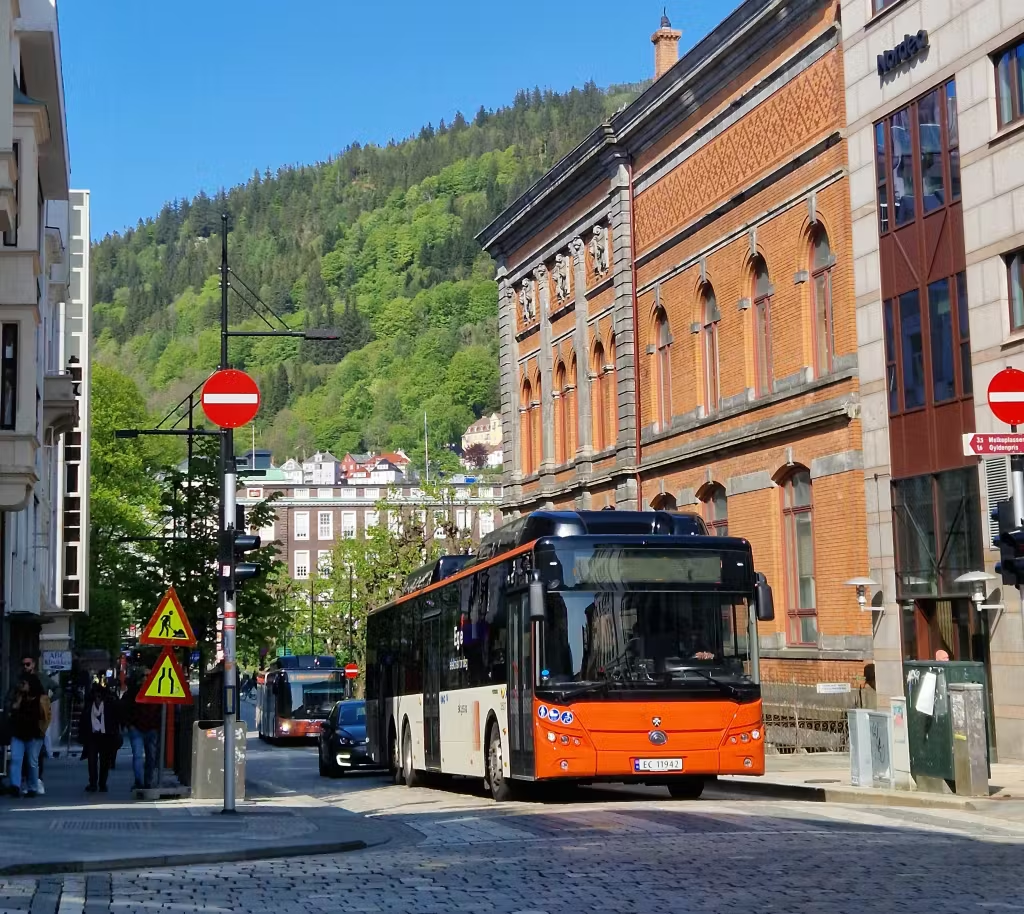Electric buses are being introduced as an alternative to fuel buses in many cities around the world. Not only are electric buses much better for the planet, but they are also much more pleasant for those travelling on the bus or living in an area with buses driving by. Fuel buses produce a lot of emissions, negatively contributing to climate change, and the health of those travelling on them, which is why there has been a push by governments to transition to zero emission electric buses.
The transition from fuel buses to electric buses is an exciting and positive change for countless reasons. In some places, such as in Oslo, the transition from fuel buses to electric buses is happening at a rapid pace, with Oslo set to reach their zero emissions public transport target 5 years ahead of schedule.
With other cities following closely behind, the benefits of using electric buses are becoming much clearer, and it is now obvious that the reduced negative impact on the planet isn’t the only factor to take into consideration; comfort and noise are also improved as a result of using electric buses.
Positive impact on the planet
For decades, buses have been powered by fossil fuels, which directly deposit CO2 into the atmosphere through the extraction, burning and transportation process. With thousands of buses on the road daily, the effect of all of these buses burning fossil fuels is enormous.
By transitioning to electricity, it means that buses will no longer contribute to the creation of harmful emissions, since electric buses don’t produce any emissions. And with the ever-improving development of renewable energy through sources such as hydropower and wind power, powering a bus with electricity makes sense in the long term too.
And while the production and disposal of batteries for electric buses does come with its own set of environmental challenges, advancements in battery technology and recycling practices are steadily mitigating the impact of this.

Noise pollution reduction
Electrical buses are also a better alternative to fuel buses due the minimal amount of noise they produce. Fuel buses are much louder than electric buses, and make the city or town a noisier place to be. The transition to electric buses has the potential to transform cities into quieter, more peaceful environments, improving the quality of life for residents and visitors.
The quiet operation of electric buses also provides a more comfortable and pleasant experience for passengers and drivers. For those on board, the decrease in noise levels enables easier conversation, provides a more relaxing atmosphere, and reduces stress – particularly on long journeys or commutes.
Moreover, less noise pollution means less disturbance to local wildlife, which can positively impact biodiversity within urban areas.
Comfortable for passengers
Electric vehicles are also significantly more comfortable to travel on than fuel buses.
The ride in an electric bus is noticeably smoother due to the power delivery from an electric motor being consistent, allowing for seamless acceleration and deceleration. Unlike diesel buses, which often vibrate when stationary, electric buses provide a far more relaxing journey, reducing motion sickness and improving the overall comfort for passengers.
Electric buses also often have an improved interior design. Without the need for a large engine, more space is available for seating arrangements, wider aisles, and even amenities like bike racks. This can make public transit more accessible and convenient, particularly for passengers with mobility aids, prams, or bulky luggage.
Lastly, the lack of engine heat in electric buses can contribute to a more comfortable temperature inside the bus, especially during the summer months. Diesel engines can generate significant heat, which can make fuel buses uncomfortably warm.

In conclusion, the transition from fuel to electric buses is more than just a step towards sustainable transport; it signifies a monumental leap forward in creating cleaner, quieter, and more comfortable urban environments. As bus companies embrace this transformation, leveraging the power of data becomes indispensable. Harnessing real-time insights from your electric bus fleet can enable better planning, efficient operations, and even predictive maintenance – making the transition to electric buses even smoother.
Solutions such as Tenix charge not only facilitate smooth operations but also help predict future needs. The use of such sophisticated bus management software is no longer a luxury but a necessity in the age of electric buses.


